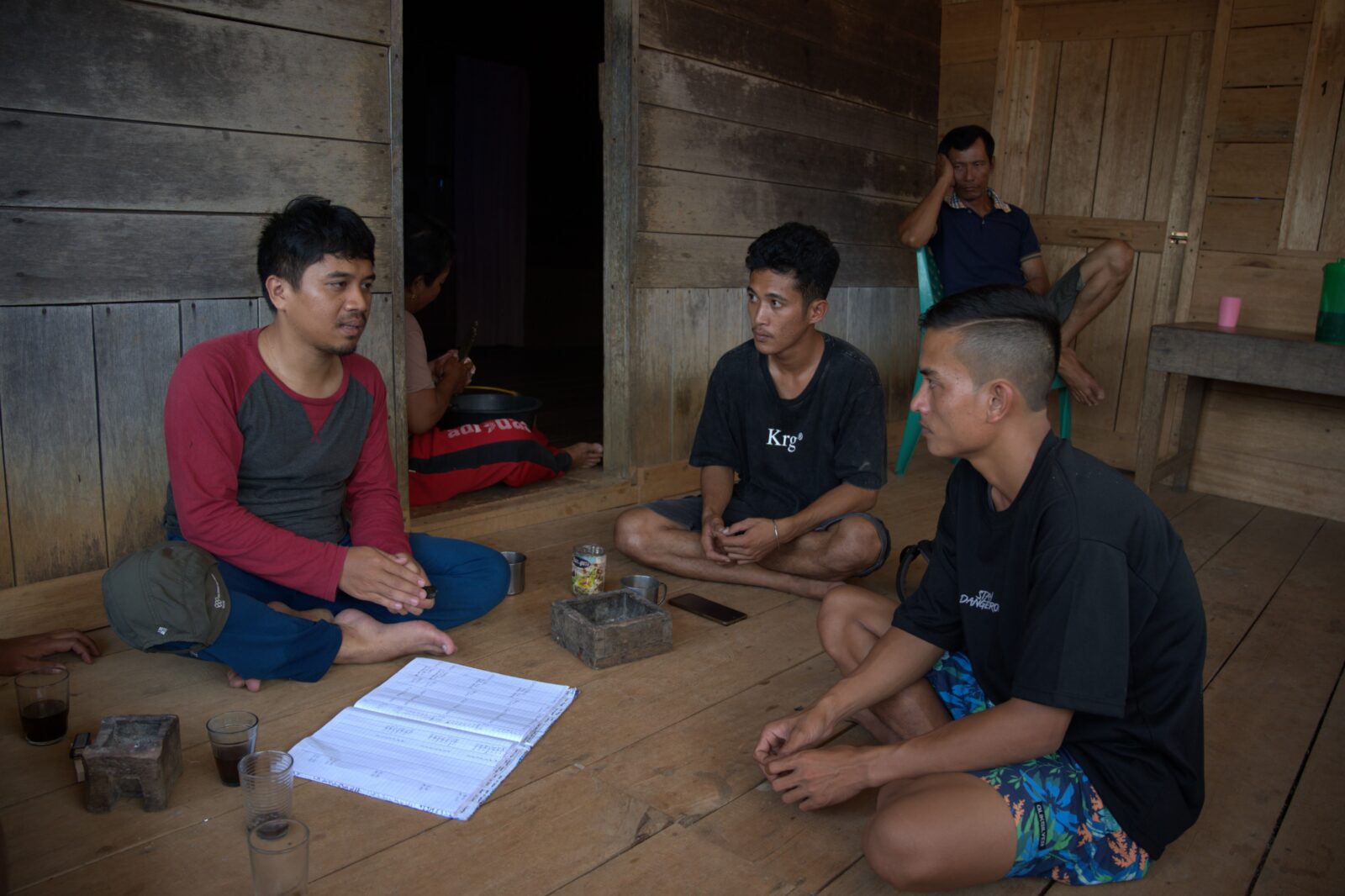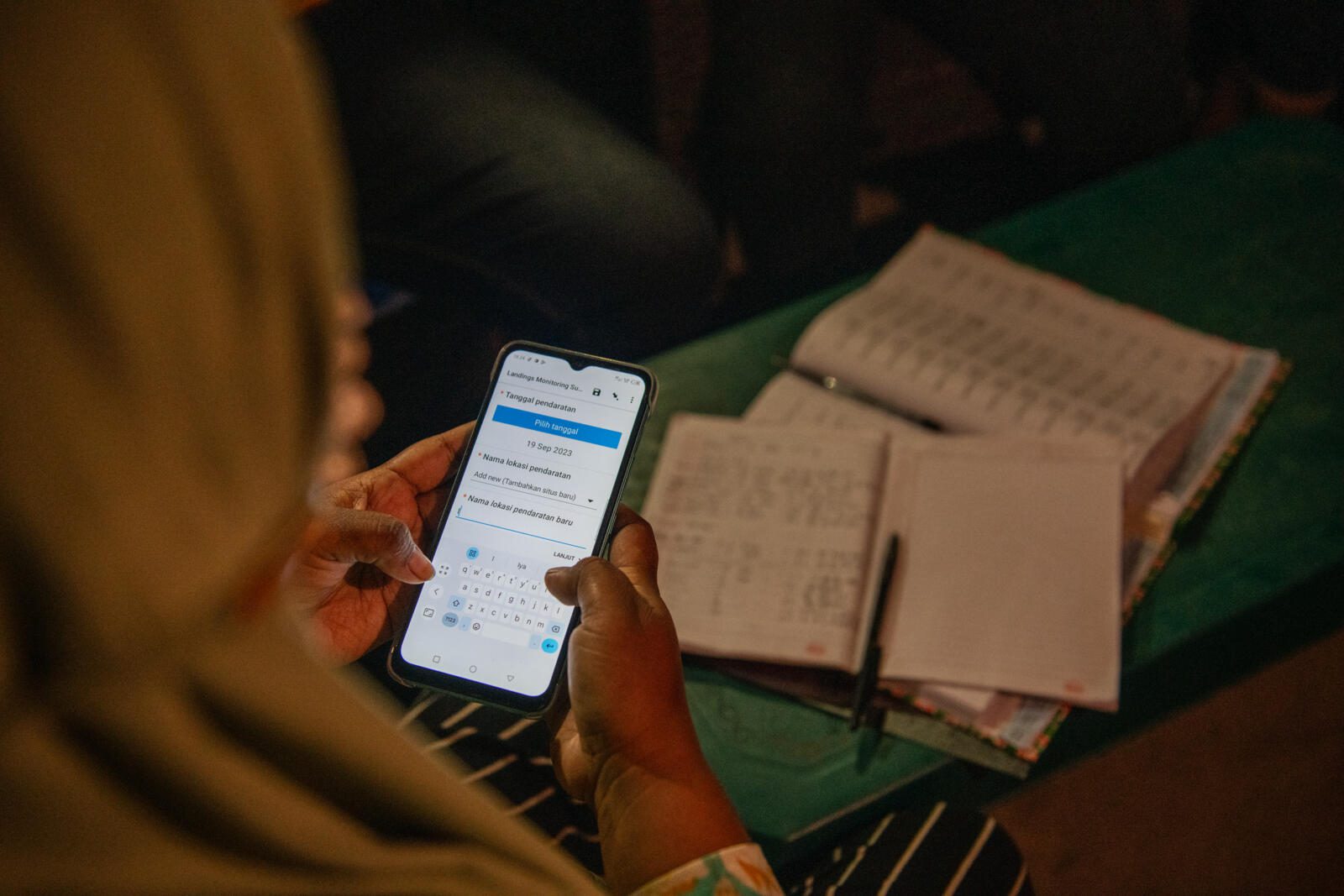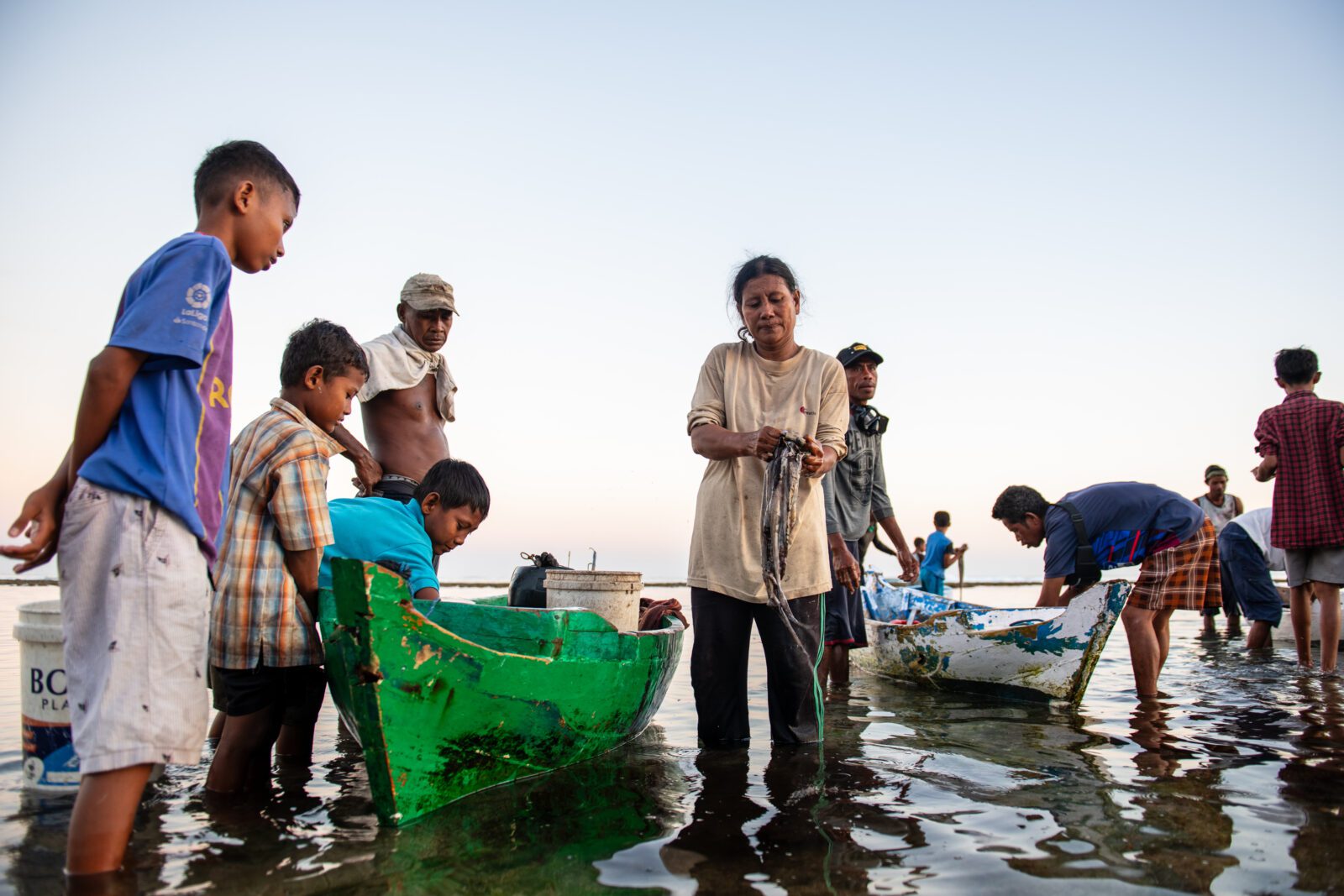Wahyu Dita Septiani is Blue Ventures’ fisheries and data coordinator for Indonesia. Her role ensures that data are unified and optimised, supporting communities in making adaptive decisions for thriving fisheries. Here, Dita dives into her journey in data management in Southeast Asia and shares her experiences, challenges, and aspirations.
The value of reliable and comprehensive data in ensuring thriving fisheries can’t be overstated. This information provides deep insight into marine ecosystems, guiding reactive and responsible management practices. Challenges emerge when catch data are manually recorded and stored, such as on paper, elevating the risk of data loss. Yet converting disparate handwritten logs into a unified digital format demands innovation and meticulous effort.
For almost a decade I have witnessed the struggles of small-scale fishers and data collectors across Southeast Asia. They contend with intricate and labour-intensive methods, relying on manual systems for the entire collection, validation, cleaning, and analysis process.

We assist women with measuring fish length in Malapascua, the Philippines. | Image: Megan Francis
Blue Ventures equips communities to lead data collection and mobilizes individuals to steward the information that can shape the future of their fisheries. We provide resources and training to a collaborative network spanning more than 80 traditional fishing communities and 17 community-based organisations (CBOs) across Indonesia, the Philippines, and Timor-Leste.
This work is a marathon, not a sprint. We’ve been embracing the use of technology in data collection since 2017 when we transitioned from paper-based methods to the cloud-based MACRO system and later to the open-source KoboCollect app. Each step has been a learning experience, with ongoing updates enhancing user-friendliness and improving data quality.

Our staff facilitates the transition to digital data storage for data collectors in Mentawai. | Image: Yoga Putra
Looking back, paper-based methods were prone to human error, with inaccuracies and misreading commonplace. They were also time-consuming, limiting our CBO partners’ availability to assist and train small-scale fishers. As holders of the data, we also faced challenges in ensuring real-time analysis and presentation.
The introduction of the MACRO system, which compiled digitised data in Microsoft Excel or Google Spreadsheets, continued to present obstacles as it required a computer with connectivity and specific software often impractical in field conditions. Not only did data collectors face difficulties using the software, but they were also forced to dedicate additional time and money to access the internet, creating another barrier to data retrieval.
“Using the MACRO system was indeed helpful, but also frustrating,” was a recurring statement from many of our CBO partners whenever they met our technical team.
So we resolved to push the boundaries by developing a cutting-edge data collection system. Driven by a shared goal, our team aspired to create a better system that could operate seamlessly on and offline. We introduced KoboCollect, an app downloadable on Android devices, to our partners in 2020.

A woman fisher utilises the KoboCollect app for octopus data entry. | Image: Megan Francis
As time advanced, the expansion of data collection locations in the field increased, each with its own distinct conditions. Unfortunately, this led to the gathered information lacking uniformity or consistency. We quickly became aware of another challenge, as these disparities presented formidable obstacles during the process of cleaning and visualising data.
It took two years of evaluation before we took steps to enhance the data collection mechanism by refining the app. This involved developing standardised questions, measurement units, and response choices across all sites. We collaborated with researchers, government officials, and the community to inform adjustments to the revised form. The app is now considered more user-friendly while preserving its efficacy in data analysis.

Community members in Ende clean octopus during the fish landing. | Image: Megan Francis
KoboCollect functionality is twofold. The Landing Monitoring Survey ensures a continuous flow of information on local fishing activities and fisheries production. In contrast, the Landing Profiling Survey is used when significant changes at the site or when detailed data are essential. Together, these surveys work in harmony, offering valuable insights for a thorough understanding of the situation.
Our CBO partners have enthusiastically adopted KoboCollect for comprehensive data collection covering octopus, fish, mud crab, and shrimp. This versatile tool not only facilitates the capture of high-quality catch data but also offers insight into gonad maturity levels and octopus age determination through precise measurements of stylets (the internal shells). This enhanced approach lays the foundations for elevated data practices in marine conservation.

Visualising the gathered data from KoboCollect on the dashboard. | Image: Yoga Putra
All collected data are filtered, validated, and displayed on a dashboard developed by Barefoot Ocean. Filtering ensures that enumerators follow precise data formats, while validation, overseen by a dedicated fisheries data officer in each CBO, ensures consistency in fishers’ names, catch values, and species type. The refined data on the dashboard serves as a reliable reference for both CBOs and the community, enhancing its impact in data feedback sessions.
“When Blue Ventures introduced KoboCollect as a new digital method for data collection, many of our field staff expressed concerns about potential job displacement. However, it has proven to be more efficient and supportive in executing programme activities in our assisted villages,” shared Wiliam Seak, the data staff of YAPEKA in North Sulawesi, Indonesia.
KoboCollect is now in use by various organisations across the region, including Fala Lamo in North Maluku, Indonesia, People and the Sea in the Philippines, and fisher groups in Timor-Leste. The integration of this new system will help scale fisheries data collection on all levels.

Traditional fishers in Ende proudly show their octopus catch. | Image: Megan Francis
Having played a role in this process, I am pleased that Blue Ventures has developed an inclusive and supportive fisheries data collection mechanism that invites significant contributions from various stakeholders, including fishers, women, youth, government and private sectors, and CBOs. The tool has stimulated a step change in partnerships for sustainable and responsible fisheries.

